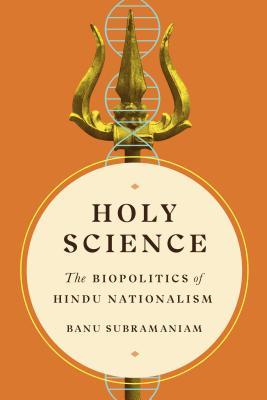Srinath Perur in Nature:
 The British quit India in 1947. A blood-soaked partition had torn the subcontinent into two states that became the Islamic Republic of Pakistan and the Republic of India, the latter comprising many faiths but secular. Or attempting to be: India was left with not so much a separation of state and religion as an intention to embrace all traditions evenly.
The British quit India in 1947. A blood-soaked partition had torn the subcontinent into two states that became the Islamic Republic of Pakistan and the Republic of India, the latter comprising many faiths but secular. Or attempting to be: India was left with not so much a separation of state and religion as an intention to embrace all traditions evenly.
Yet, since the 1990s, Hindu nationalism has steadily gathered strength in India. In 2014, the Bharatiya Janata Party gained a parliamentary majority for the first time, with Narendra Modi as prime minister. The party was re-elected in 2019, with a larger margin of the vote — 37.5%. A notable aspect of the party’s nationalist narratives is the meshing of science, pseudoscience and myth with political messages. Now, these entangled narratives are explored in Holy Science by Banu Subramaniam, a scholar of women, gender and sexuality studies.
This form of nationalism has found favour, she argues, by reinforcing an alluring idea of an India rooted in an ancient civilization where science, technology and philosophy thrived; an India that can be restored to grandeur by linking to its past. Subramaniam writes that this idea has led to a “scientized religion” and a “religionized science”, creating “a vision of India as an archaic modernity”.
More here. And here is an interview with Banu Subramaniam.
